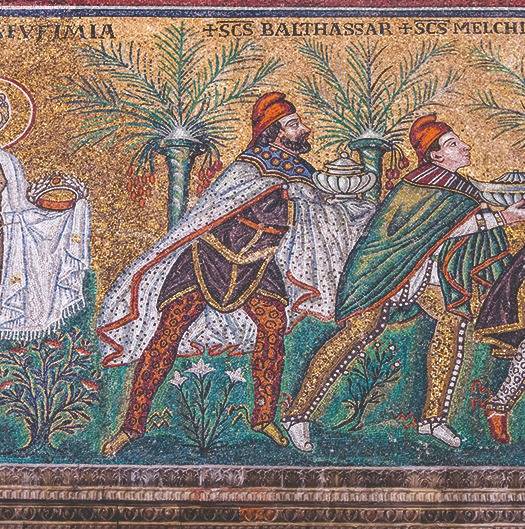Alom Shaha is one of more and more humanists who are getting involved with “interfaith” work. His work as a volunteer for the Three Faiths Forum has revealed just how limited, and often incorrect, people’s ideas about humanists and humanism can be. But he’s also aware of how non-believers can have prejudiced and uninformed ideas about those with faith. In this series of blog posts, Alom meets people from a range of religious backgrounds who open up to him about what they believe in and why.
Tom Holland is a Christian who – by and large – doesn’t believe in God. He’s also an award winning historian, writer and broadcaster. I first encountered Tom on Twitter; which he joined shortly after the publication of his book In the Shadow of the Sword, a fresh look at the origins of Islam. The book is a compelling read - Tom has a knack for presenting scholarly, historical research in a “blockbuster” storytelling manner which makes his books popular with both critics and lay readers like myself. Unfortunately, and perhaps somewhat predictably, his re-telling of the birth of Islam was not to everyone’s liking and Tom found himself having to defend himself against vicious attacks on his work and integrity from some Muslims. To put it simply, Tom challenged the truth of a story that many hold dear and, for this, they wished to see him punished.
The irony is that Tom appreciates better than most the hold that stories can have over us. It is evident from his work and from talking to him that he not only loves stories, but that he also thinks they are important because they “articulate profound truths” and in doing so shape individuals and the societies to which they belong.
When talking about his youth, it’s clear Tom spent a lot of his time reading, immersed in stories. He says, “I was fascinated by mythology, I particularly adored the Greek gods. I would very much have liked the Greek gods to be real. I thought, and I still think, in many ways, Athena is the most perfect reflection of the way the universe is - very clever, willful, and cruel and, to me, that’s rather what life is like.”
I have to confess that before getting to know Tom, I assumed that he was an atheist - after all, he’s incredibly knowledgeable about ancient texts and he readily admits that the God of the Old Testament is no more “real” than the Greek gods. Yet, when we talk, he makes it clear that he is not an atheist, but most definitely a Christian.
When I ask him if he actually believes in the existence of a god he replies “There's a sort of nagging, god-shaped hole in the back of my mind and the simulacrum of a god that I use to fill it is a Christian one. I could read the account of the passion, go to church on Easter and feel this is true, feel that it is articulating truths that affect me far more profoundly than I could possibly put into words, I feel myself in communion with the vast inheritance of Christian faith, I find that moving and at moments like that, I think “is this what it’s like to believe in god?”” However, he also tells me that “I have seen no evidence that would satisfy me that anything supernatural exists. I have seen no proof for god.”
So, how does he reconcile identifying as a Christian without actually believing in the existence of “God”? Tom explained that he grew up with an atheist father but that his mother was “a devout Anglican, not in a pushy sense, but in a sense that it informs her life”. He went on to say that “my model of kindness and goodness derives from her... I’ve always associated Anglicanism with goodness and decency and generosity of spirit and compassion, so I never had that visceral association of Christianity or institutional religion with repression or dogma or illiberalism”.
But it’s not just respect and empathy for his mother’s faith that leads Tom to identify as a Christian - it is the very source of Christianity, the story of Jesus, that appeals to him: “Jesus, the figure of Christ, worked against the cruelty of the Greek gods, the classical gods and of the classical word. I liked the idea of a faith which has at its heart an omnipotent deity who is humiliated and crushed because it channels the kind of fear I have of how the world functions, of the cruelty of the world”.
Tom told me that identifying as a Christian was his way of “paying a debt of honour to the wellsprings of [Christian] values and ethics” that he has. He feels strongly that it is a debt that more secularists ought to acknowledge: “I’d always rather lazily thought that secularism’s own mythology, that it somehow comes into being via a kind of virgin birth, was true...that enlightenment is something that’s out there, just waiting to be discovered, and anyone can have it. I don’t think that at all now - I think that what we call the enlightenment is as culturally determined as anything else, I think that the seedbed of the enlightenment, of secularism, is not classical, but Christian. An obvious point of difference with Islam [is] that the Christ of the Gospels does not offer a blueprint for how an earthly Christian state should be run: there is a dimension of the spiritual and there is a dimension that is secular - that becomes hardwired into western culture”.
It’s an interesting position to take and I wonder how many secularists, or indeed other Christians, reading this will acknowledge that perhaps Tom is right and agree with him that “secularism is western Christianity’s greatest gift to the world.”

